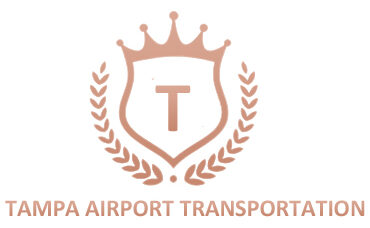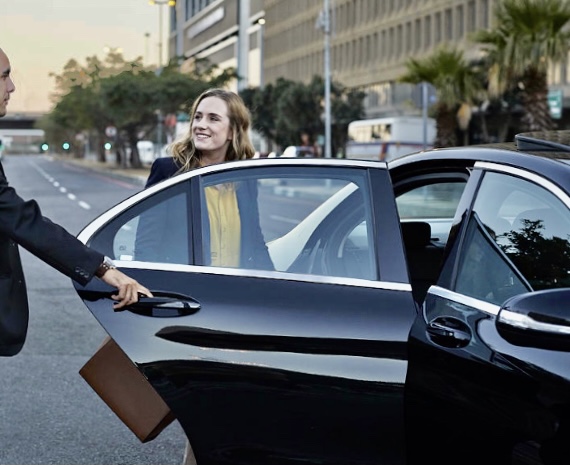Tampa Airport is not just your friendly neighborhood airport transport company. We are also your source of information on a topic that concerns many travelers and families: SUV safety.
SUVs, or Sport Utility Vehicles, have gained immense popularity over the years due to their spacious interiors, versatility, and rugged appearance. But are they really as safe as they seem? In this blog post, we’ll take a closer look at the safety features, statistics, and factors that determine whether SUVs are safe for you and your loved ones.
The Appeal of SUVs
SUVs have become a common sight on our roads for a multitude of reasons. Let’s explore some of the key reasons behind their popularity:
- Space: SUVs offer generous interior space for both passengers and cargo. This makes them an ideal choice for families, road trips, and outdoor adventures.
- Versatility: They can handle a variety of terrains, from city streets to off-road trails, making them suitable for different lifestyles.
- Perception of Safety: The size and height of SUVs often give drivers a sense of security and a better view of the road ahead.
Understanding Safety Features
To determine if SUVs are safe, it’s essential to examine the safety features that modern SUVs are equipped with:
- Advanced Airbags: Most SUVs come with a range of airbags, including front, side, and curtain airbags, providing protection in various collision scenarios.
- Electronic Stability Control (ESC): ESC helps drivers maintain control of their vehicle during emergency maneuvers or slippery road conditions.
- Anti-lock Braking System (ABS): ABS prevents wheels from locking up during hard braking, reducing the risk of skidding.
- Traction Control: This feature helps maintain traction on slippery surfaces, enhancing overall stability.
- Rollover Mitigation: Some SUVs are equipped with systems that can detect the potential for a rollover and take corrective action.
- Blind Spot Monitoring: Many newer SUVs have blind spot monitoring systems to help drivers avoid collisions while changing lanes.
Crash Test Ratings
One of the best ways to assess the safety of SUVs is by looking at crash test ratings conducted by organizations such as the National Highway Traffic Safety Administration (NHTSA) and the Insurance Institute for Highway Safety (IIHS). These organizations evaluate vehicles in various crash scenarios to provide valuable safety information.
- NHTSA Ratings: The NHTSA assesses vehicles on a scale of 1 to 5 stars in various crash categories. A higher star rating indicates better safety performance.
- IIHS Ratings: The IIHS conducts several tests, including frontal crash, side crash, roof strength, and head restraints, and assigns ratings from Poor to Good.
It’s crucial for consumers to consult these ratings when considering an SUV purchase, as they provide valuable insights into a vehicle’s safety performance.
SUV Safety Statistics
Let’s delve into some statistics to gain a better understanding of SUV safety:
- Rollover Risk: SUVs tend to have a higher risk of rollovers compared to other vehicle types due to their higher center of gravity. However, modern SUVs are equipped with stability control systems to mitigate this risk.
- Occupant Protection: SUVs typically offer good protection to their occupants in frontal and side-impact crashes. Their larger size can absorb more impact force, which can be advantageous in certain situations.
- Pedestrian Safety: Due to their size and design, SUVs may pose a higher risk to pedestrians in the event of a collision. However, manufacturers are actively working on pedestrian detection and mitigation systems to address this issue.
- Fuel Economy vs. Safety: Smaller SUVs often have better fuel economy but may not provide the same level of occupant protection as larger models. This trade-off is something to consider when choosing an SUV.
Safe Driving Practices
Ultimately, safety depends not only on the vehicle but also on the driver. Here are some safe driving practices to keep in mind when driving an SUV:
- Buckle Up: Always wear your seatbelt, and ensure that all passengers do the same.
- Speed Control: Adhere to speed limits and adjust your speed for road and weather conditions.
- Avoid Distractions: Keep your focus on the road and avoid using your phone or engaging in other distractions while driving.
- Maintain Your Vehicle: Regular maintenance and servicing are crucial to ensure your SUV operates safely.
- Follow Safe Following Distances: Maintain a safe following distance from the vehicle in front of you to allow for reaction time.
Are SUVs Safe?
SUVs (Sport Utility Vehicles) can be safe vehicles, but safety ultimately depends on various factors. The factors include the specific make and model of the SUV, its safety features, how it’s driven, and the conditions in which it is used.
It’s important to research and compare specific SUV models, taking into account their safety features, crash test ratings, and real-world safety performance. Additionally, consider your own driving habits and needs when selecting an SUV. The factors like size, handling, and fuel efficiency can also impact safety.
Ultimately, no vehicle is entirely immune to accidents. By choosing a well-rated SUV, practicing safe driving habits, and maintaining your vehicle, you can significantly improve your safety on the road. At Tampa Airport we ensure that our customers get to ride a safe and well maintained SUV.
Conclusion
Are SUVs safe? The answer is not a simple yes or no. SUV safety depends on various factors, including the vehicle’s design, safety features, crash test ratings, and the driver’s behavior.
While SUVs offer several safety advantages, such as advanced safety features and better protection in certain types of crashes, they also have unique risks, such as rollover potential and pedestrian safety concerns.
As a responsible driver and consumer, it’s essential to research and choose an SUV that aligns with your safety priorities and driving needs. Additionally, always practice safe driving habits to minimize the risk of accidents.
At Tampa Airport, we prioritize the safety and well-being of our passengers, and we hope this blog has provided valuable insights into the topic of SUV safety. Safe travels, and we look forward to welcoming you to our beautiful city.

